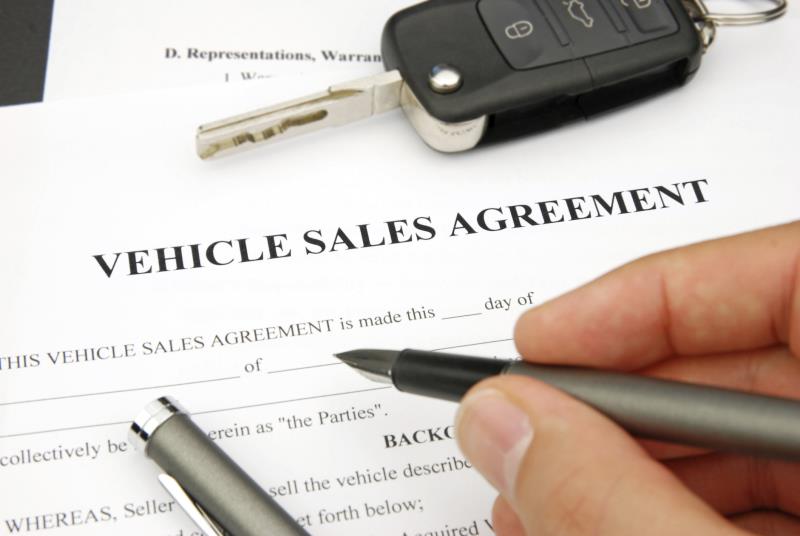
In the excitement of buying a used car, buyers might not pay much attention to the title status. In a high percentage of used car sales the title will be clean, meaning that the car has not suffered catastrophic damage. However, used cars with titles designated as “salvage” or "branded" are also being sold to unwitting buyers, which means the car has suffered damage in the past. It's important to understand the difference between these statuses before buying a vehicle.
The certificate of title for a vehicle, commonly referred to as a “pink slip," represents legal ownership of that vehicle. The vast majority of titles are clean, meaning that the car has not been in a major accident or suffered catastrophic damage from water, fire, hail or some other force. The information on a title will usually include the license plate number, the vehicle identification number, the make, the model, the name of the owner, and the owner’s address.
A vehicle that has suffered major damage will be considered totaled by the insuring company if the cost of repairs exceeds 50 percent to 90 percent of its fair market value, depending on the benchmarks set by each state. Once the vehicle has been totaled, the insurance company usually pays the claim, takes possession of the car, and designates that the status of the car be changed to “salvage," which makes the car illegal to drive. In most cases, salvage-titled cars are sold at auction to buyers planning to either rebuild the vehicle or dismantle it for parts and scrap metal. In a handful of states, a salvage designation cancels the title, meaning the vehicle may only be dismantled.
A branded title can display a variety of designations describing major issues with a car, including the salvage label. For example, if a salvage-titled car that was purchased from an auction is repaired to a point of being street legal again after inspection by a state official, the brand on the title will be changed from salvage to “rebuilt." A title can also be branded with the term “lemon” or “warranty return” if the car was returned for failing to comply with the standards written into “Lemon Laws” legislation. Vehicles that have suffered extensive water damage, are suspected of having the odometer rolled back, were abandoned in a non-operational condition, or were heavily vandalized can also be branded with damage-specific designations.
Buying a used vehicle with a branded title can result in a variety of problems, including paying too much for the vehicle, constant repairs, safety issues and low resale values. For non-professional car buyers, the easiest way to mitigate these risks is to order a Vehicle History Report from either Carfax or Autocheck. In addition to revealing information regarding branded titles, the reports from these services include the history of ownership, maintenance records and recalls to provide a comprehensive picture of each car under consideration for purchase.